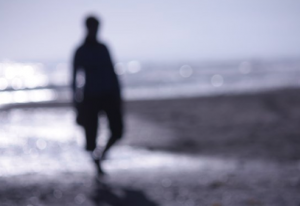My husband was excommunicated from the LDS church last Wednesday night by a council of 12 men led by the three members of our Stake Presidency. Other relevant officials, such as our bishop, were also involved in the proceedings.
I will run through a brief summary of the events and then offer some of my observations about them. Note: to protect the privacy of the people involved, I’m going to discuss some of the actions more generally.
1) We arrived at the appointed time and were asked to wait in a small foyer while the men convened. There was a bit of small talk. I knew most of the men involved with this event and greeted them by first name (I knew more of them than John because of my previous stake-level callings).
2) We were ushered into an office to meet with the man who was officiating at the event. He stressed to us that the event was sacred and should not be discussed, adding that it would not proceed if we insisted on recording any part of it. We affirmed that we would not record it and then he explained to us how the evening would proceed. John was charged with being in apostasy, which our church leaders defined using the CHI definition: “to repeatedly act in clear, open, and deliberate public opposition to the Church or its leaders.” We were told that if John didn’t deny those charges, the procedure would be over rather quickly. John then requested that whether he accepted or denied the charges, he wanted me to have the opportunity to testify on his behalf. The leader agreed to this.
3) We were led to a side room to meet briefly with our bishop. We exchanged pleasantries, having only met him once before.
4) John was ushered into the Council room. He can speak best on what happened at that point. He did not deny the charges. This portion of the evening was the only time that I was left alone.
5) I was then led into the Council room. To draw a picture for those who have never seen one before: it is a long, rectangular room with a gigantic T-shaped table in the middle. At the head of the “T” sat the Stake Presidency. The room’s long walls were lined with about ten men sitting on each side. At the far end of the table from the SP there were two folding chairs. That is where we were directed to sit. When I entered the room everyone was standing. Every man in the room except for John was wearing a dark suit, a white or pastel-colored shirt, and tie. Most of the men were 50+ years of age. There were numerous familiar faces. I will admit that the scene was daunting. I think I even visibly startled for a moment at the sea of suits.
6) After a bit of small talk, I was then asked to offer my opinion on whether John was in apostasy, and was read the above definition. I sat in silence for a few moments, realizing that I could not answer that question.
7) I then explained that I could not answer the question posed to me because I felt that the question was worded far too vaguely for me to answer definitively. I noted that words like “public” and “deliberate” were terms that were open to a variety of interpretations. I then stated that my purpose in testifying was to speak about John’s intentions and his character, and to offer my observations that his writings online were in line with his ongoing search for truth, and that I saw no inconsistency between his recent behavior and his decision 20 years ago to be baptized into the church even knowing that doing so was against his family’s will. I emphasized that John intended no malice with his writings, that his intentions were to speak truth rather than to destroy faith. And so forth. I believe I spoke for about 5 minutes.
8) I was then asked if I loved John. And he was asked if he loved me. We were led into a small room to meet with our bishop. At this point, I believe the council members were praying to know the Lord’s will about the court verdict.
9) My favorite part of the evening was my chat with the Bishop. I suspect that I might have freaked him out a bit with my non-stop description of our family’s faith journey. In any case, I got some things off my chest & found a listening ear.
10) John was invited back to the Council room. He can fill in what happened there.
11) John retrieved me from the small room where I was waiting and the various men milling around in the hall made it clear that the meeting was adjourned. I followed John out the door into the night air, the bishop walking alongside. But no one had yet told me the verdict, and there was some awkwardness to the final exchanges between us and the Councilmen. As we neared the car I turned to John & Bishop and asked. They had supposed that I knew John was ex’d. It was a strange end to an odd night. I had thought that there would be a final meeting with a church official to explain the consequences of the ex’ing, specifically how it would affect my temple ordinances, and I felt a bit lost by not having had that. As we drove away John said that the consequences of the ex’ing were never explained to him, either, and that the verdict was given that he was in apostasy and something about excommunication was mumbled afterwards. (I should note that the room where the council was held was gigantic and the man conducting the meeting is so soft-spoken that it was nearly impossible to hear anything he was saying from where we sat.)
Here are some of my initial thoughts about this experience:
–We were told at the beginning of the proceedings that there was little doubt that John would be found in apostasy due to the clarity of his web writings. I found this declaration off-putting given that John’s request to know specifically which of his writings were ‘apostate’ was not considered relevant. The only detail that was offered was a confirmation that he was not being called to court for his stand on Prop. 8.
–Holding a court for ‘apostasy’ is confusing to me, perhaps because the reasoning behind such activities is never explained. If I had not heard of the September Six, I doubt I would have even known that there was such a thing as a court for apostasy–this is not mainstream Mormon stuff. There is never a point in LDS ritual where members make a covenant to not criticize their leaders or the church (note: there is a moment in the temple where one promises to avoid all lightmindedness, loud laughter, evil speaking of the Lord’s anointed, the taking of the name of God in vain, and every other unholy and impure practice. I had always assumed the “evil speaking” bit to mean saying lewd or rude things about church leaders, not critique of church policies–and the meaning of these archaic phrases is never explained in the temple. Also, given that I’ve never heard of anyone being ex’d for swearing or laughing, it seems a highly selective and arbitrary criteria for cutting someone off from the church). Yes, there are prophetic warnings about avoiding personal apostasy, but I know of nowhere that members are given the handbook definition of apostasy as a behavioral guideline. We did not even know how this term was defined until we asked for clarification prior to the court. I would add that even with the definition given to us I had no idea how it applied to the fuzzy space of internet writing.
–The actual physical dynamic of this event was very strange. We were constantly being ushered in and out of the various rooms. At one point I requested to sit in the foyer outside the council room rather than having to walk back to the holding room down the hall. My request was denied, which seemed very strange. I suppose there is a very rigid protocol that’s being followed, but the rules weren’t all explained to us and it just felt weird to be led back and forth and all around every few minutes. As I’ve reflected on why we were carefully corralled and escorted during these proceedings I wondered if there was a concern that we would initiate a protest or invite protesters to ‘storm the building.’ I have no idea, but it was very strange, indeed.
–John has said that he’s satisfied with all that happened. He went expecting to lose his membership and he encountered no surprises there. I couldn’t help but find it oddly harsh to have the council only interested in the answer to a single question as a litmus test for a 20-year investment in the church. They didn’t care about John’s intent, about any of his devotional practices, about his adherence to the commandments, etc. They didn’t ask about any unorthodoxies in the realm of sexual behavior or Word of Wisdom (note: typically excommunication in the LDS church happens because of sexual indiscretion). It hurts to know that the church had felt it appropriate and necessary to excommunicate John, when someone like my high school boyfriend who was baptized & active for all of one month is still considered a member in good standing.
–I got the feeling from some of our interactions with church leaders that they expected us to be belligerent or to make a scene at this occasion. Though these were all subtle impressions, it reinforced my sense that all ‘apostates’ are painted with the same broad brush. John and I have repeatedly affirmed that we would not disrupt meetings or violate the sanctity of church spaces–doing so would be inconsistent with our values. However, overall, it may be that the stigma of the letter “A” will now speak more loudly than anything else John says or does from now on within the Mormon community.
–I don’t yet know how this excommunication will affect me or our children. From what I gather, the sealing ordinance that occurred when we married in the Los Angeles Temple is now dissolved (this is the ordinance that binds me and John and our children together in the hereafter). Most Mormons are asked on an annual (or biannual) basis whether they affiliate with or are sympathetic to apostates (or apostate groups). This is part of the list of questions that they must answer to qualify for a temple recommend. Because of this question, I suspect that many active LDS will be wary of being friendly with me or John. When I was more embedded in the church myself, I remember feeling some concern about developing close friendships with excommunicants–I was concerned that doing so was a step forward onto the slippery slope of my own apostasy.
–In this write-up of the events, I’ve attempted to be fairly objective in my understanding of what happened that night. For those who might not know me (or my blog), I want to make it clear that I do not support the holding of LDS church courts for apostasy. Such events reinforce a hierarchical/patriarchal approach to spirituality that is repulsive to me. While I respect many of the men who participated in this event, I do not respect the reasoning behind it. In my mind, it is an act of violence to cut someone off from the body of the church, essentially ‘damning’ them from affiliation with church members and from the celestial kingdom (or Mormon heaven) in the afterlife. I see nothing of God or of the divine in such actions.






When I received this ritual, it didn’t occur to me to remove my artificial limb. Most likely that was due to the fact that I wouldn’t have been ambulatory without it, and also because I was not sure exactly what the “rules” were about such things and no one clarified them for me (for the most part, these rituals are not explained beforehand, due to their sacred nature). Since then I’ve learned that women with breast prosthetics can choose to wear them during the ritual. I’ve never heard any definitive word on the wearing of artificial limbs, but I suspect that it is allowable.
Because of the staging of this ritual, it was not evident to the recipients that I was wearing an artificial leg until it was nearly completed, when the officiant bent down in front of me to bless my legs (while I was seated on a throne-chair). After undergoing the washing and anointing a few times, I learned to catch the gaze of the officiant as she reached out to touch my not-real leg. There was often a pause. Usually a knowing glance was exchanged between us as she continued on with the script of the ritual (were she to speak words other than those prescribed, the ritual would be deemed ineffective and would have to be repeated according the prescribed pattern).
In the moments after the ritual, as we waited for me to be escorted by an officiant to the next step in the process, there was often a moment for some whispered conversation. Usually the officiant would mention something about my leg, asking how did I lose it, or commenting that my prosthesis looked very lifelike (which was back in the day before I chose to let my robotic innards hang out).
Those ritual moments, are, for me, emblematic of how I view my relationship to my prosthetic leg. It seems as much a part of me as my tongue, or my eyes, or my liver. That I take it off at night and lay it next to my bed, doesn’t make it any less “me.” That it is a thing of metal and plastic and vinyl, doesn’t make it any less familiar than my other leg and foot. That it sometimes makes an audible whirring adjustment sound when I walk through quiet spaces, is no different than the familiar creaks of my organic joints. That its parts are fabricated from components that come from all over the globe, and are assembled by workers in Germany and are fitted to my body by men in Orange County, doesn’t make it any less me. Perhaps what makes it feel the most ‘foreign’ is the attention that my leg garners as I move through public space. It is the reaction of others that reminds me that I am different.
I suppose that being a cyborg comes “naturally” to me. I couldn’t live my life normally without the microprocessor in my knee, or the metal crutches that I use when I’m not wearing my prosthetic. These tools are so much a part of my life that they are my life. They are familiar in the same way that my hands are on my keyboard. I don’t think each time I type that I am sending letters from my fingertips to the screen and out to you. I just do it. Like that, I just walk. And stand. And move. The way that I do.
*Note: recently there were some changes to this ritual that include less physical interaction between officiant and recipient, and also how much clothing is removed beforehand. I am discussing how it worked back in 1992, when I first participated.